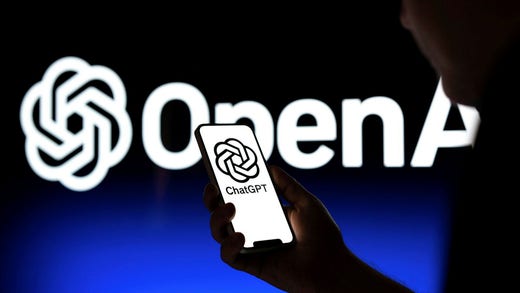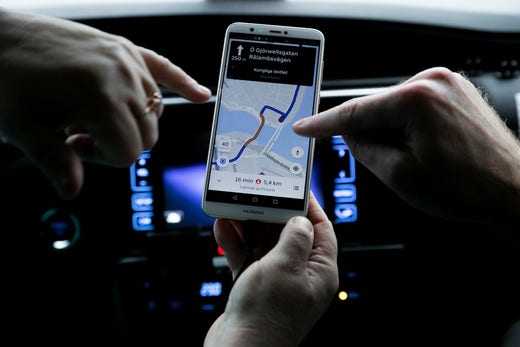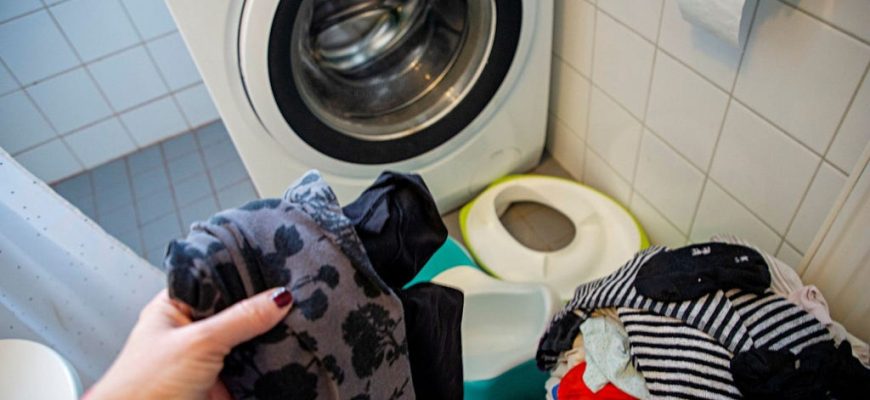Eleven years ago, shortly after Google had created an AI that could recognize cat videos on YouTube (without anyone telling it what a cat was) published two economists at Oxford a report.
Carl Benedikt Frey (yes, he is Swedish) and Michael Osborne tried quite innocently to calculate what AI would mean for the labor market. What they hadn’t counted on was that their report would be cited 12,000 times.
And lead to black horror headlines in the world’s media.
It was the figure “47 percent†that caused the uproar. Namely, so many jobs risked disappearing (in the US) because of AI, the two economists noted. This was quickly interpreted to mean that “The University of Oxford†had concluded that half of all jobs in the world would soon be done by machines. Hordes of desperate people would either need to be taken care of by the state.
Photo: Janerik Henriksson/TT
Or forced to make a violent revolution against the robots.
But that’s not what Frey and Osborne said. They only said that 47 percent of all jobs are at risk of being automated. Whether it turned out that way or not depended on everything from politics to trade unions. As you know, the economy is a dynamic thing. It is also rarely the case that jobs disappear without new ones being created. 60 percent of today’s American occupations did not exist as recently as 1940, economist David Autor recently concluded.
You can no longer make a career as an elevator boy or street lamp switcher.
On the other hand, as a pilates teacher, psychodynamic therapist or prompting engineer.
Despite that, it was with some trepidation that I read Frey and Osborne’s new report this week. A decade after scaring us with their “47 percent†they are now trying to update their forecasts. And they do it at a time when AI can handle tasks that ten years ago we never thought AI could handle.

Photo: Jaap Arriens/NurPhoto/Shutterstock
In 2013, for example, journalists were not included among the jobs that risked being taken over by the machines. The Oxford economists concluded that it was unlikely that the robots would learn to write. Today, that’s exactly what ChatGPT does. Creative jobs that ten years ago were thought to be quite safe no longer seem to be. AI can create movies, design paintings or write music.
Something has obviously gone wrong. We wanted robots that could clean and fold our laundry so that we ourselves could spend our days writing poetry and creating art. Instead, we’ve got AI that writes poetry, paints pictures and expresses itself in all possible creative ways.
While we humans still stuck with the laundry!
Frey and Osborne state that a limitation of the new AI technology that will have great economic significance is its tendency to hallucinate. Namely, the new machines are not just artistically designed.
They are also a little crazy.
Microsoft’s new AI search engine tried to persuade a reporter from the New York Times to divorce and raved that some users were its “enemies†. ChatGPT accused a completely innocent law professor of sexual harassment (against people, not machines) and the new AI tools can generally make up facts or claim things that aren’t true at all. Frey and Osborne state that this problem will not go away just because you train the models on more data. If it even happens. And what do you do with an employee who is good at a lot but who sometimes just starts hallucinating?

Photo: Ali Lorestani
Well. You don’t let that person work alone.
In other words, people will still be needed.
Carl Benedikt Frey and Michael Osborne do not see the new AI models as a technology that in itself will replace jobs. They suggest that ChatGPT should instead be compared to the invention of the GPS navigator. And what consequences did it have on the labor market?
You no longer needed to know the name of every street in Stockholm. It was enough to install an app. People with much less knowledge than the trained taxi drivers could therefore suddenly drive taxis. Not as good. But good enough to take over part of the market.
It was this as a company that Uber used.
The new technology did not lead to fewer jobs in the taxi industry. In contrast to more competition, lower prices and lower wages.
ChatGPT is like a sort of “GPS navigator for language†, suggest Frey and Osborne. Other AI models democratize programming or design in a similar way. Ordinary people can suddenly do what you previously needed to be a specialist to be able to do. There will be more competition in these industries and possibly lower wages. But the best human workers will always beat the best machines.
For me, however, this is scant consolation.
I don’t want to be the responsible person who has to sit and control a wild, creative (and sometimes hallucinating) AI! I want to be wild, creative (as well as free to hallucinate). And I want a dry AI that sits next to me and takes responsibility for the whole thing not derailing.
Is that really too much to ask?!
Read more: More chronicles by Katrine Kielos Marçal
Read more: “Women need to get involved in AIâ€








